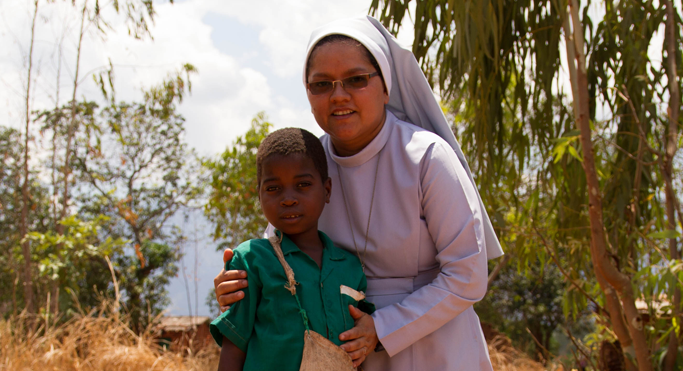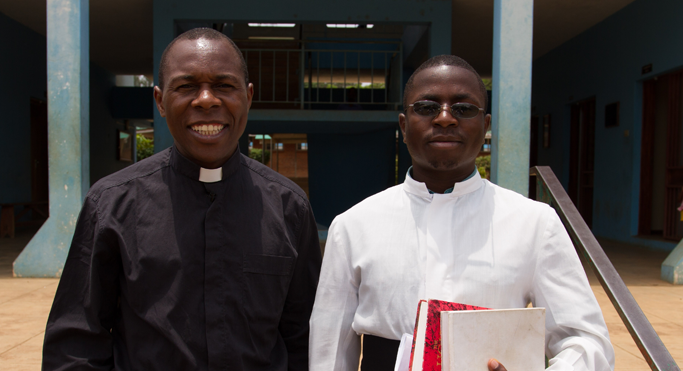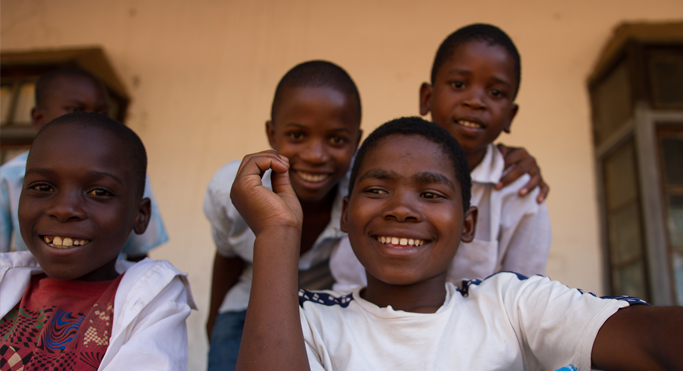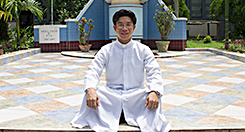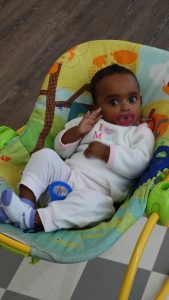
In the forgotten slums of south Tel Aviv, eight babies in just over a year have died in illegal ‘baby warehouses’ where one person attempts to care for up to 40 children. They are victims of a system that forces parents to choose between destitution and illegal childcare services. A member of the Missio team recently visited the Holy Land and saw how the Church is saving young lives.
Another small coffin enters the ground. The seventh death of a baby in the parish in just over a year. This little one had been left on her back, holding a bottle of milk for hours and had choked; her tiny arms not strong enough to move the bottle away from her small mouth.
This tragic story of neglect is one told to me recently by Fr David Nehaus whilst visiting the slum area of south Tel Aviv, on behalf of Missio. An Israeli Jesuit, he encouraged me to come and see how the support of the faithful is making a difference to the lives of immigrant families in this neglected part of Israel.

Welcoming me with a smile, Fr David explained that this area of Tel Aviv had held much promise. Once it was going to be a transport hub for the Middle East. A huge abandoned concrete bus terminal still looms over the skyline of this dusty neighbourhood of broken footpaths and littered streets.
Much of the housing is rented to immigrant families, mainly from Asia and Africa, who struggle to earn enough to pay their rent, and work long hours in factories. Others toil in domestic or construction work, scraping together a living.
Can you help save lives in Tel Aviv?
These desperate parents have no choice but to leave their little ones in overcrowded, poorly supervised ‘baby warehouses’, praying for their safe return at the end of the working day. Staying at home with their children isn’t an option. And what choice do they have? No work means no food and no roof over their head.
With the shocking loss of yet another baby, Fr David investigated and discovered that all of them had been left in ‘baby warehouses’, despite this practice being illegal because of the high risk to infants.
He realised that the only solution was to start parish-run day care centres.
But with few resources and a large population to look after, this was going to be a huge challenge.
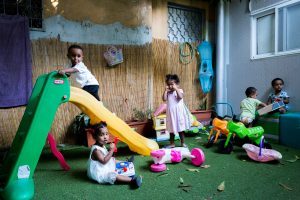
Fr David managed to start the first crèche in the pastoral centre in 2017 and now, with your support, two crèches in the Our Lady Woman of Valour Pastoral Centre and two other family units are up and running. The family units are set up in local apartments, where the crèche managers live with their families and pay cheap rent to the parish in exchange for allowing their home to be used for childcare purposes.
At the moment, 54 infants are cared for, from three months to three years old. As well as safe and monitored childcare – one staff member for six children – the centre provides healthy meals and snacks throughout the day. This provides vital nutrition for the children as buying fresh food is too expensive for some families.
Any family can apply for a place for their child, not just Christians.
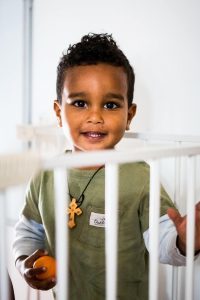 Parents must pay a contribution, but this is often subsidised by the Church as many migrant workers struggle to pay the full amount.
Parents must pay a contribution, but this is often subsidised by the Church as many migrant workers struggle to pay the full amount.
Fr David works with Sr Dinesha, a Sri Lankan ‘Our Lady of Perpetual Help’ sister. Having studied Child Education at university, she believes her responsibility to these refugee children is simple: ‘To provide love, care and the security they need’.
Although her focus is on caring for the children, Sr Dinesha also trains and encourages the refugee women employed by the preschool programme. ‘We want to bring women together to achieve success,’ she explains. ‘We run programmes to train and teach them. We want to empower them.’
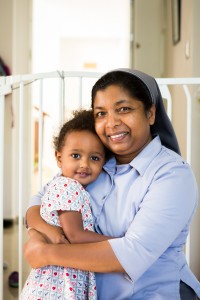
Years of conflict and trauma have left many refugees with a sense of disconnection from community and church. ‘People come to south Tel Aviv from many different countries; when they arrive here many have spent a long time away from the Lord,’ Sr Dinesha tells me. Building trust is a slow process, but Sr Dinesha sees providing spiritual support as crucial – she knows that gathering together to share the Sacraments, praying and reading God’s word gives a sense of belonging.
There are many heartbreaking challenges in this part of the world, but Sr Dinesha tells me that when she feels lonely or disappointed she draws strength from her faith and the knowledge that there are people supporting her and holding her in prayer.
To support the life-saving work of missionaries like Sr Dinesha, please click here


